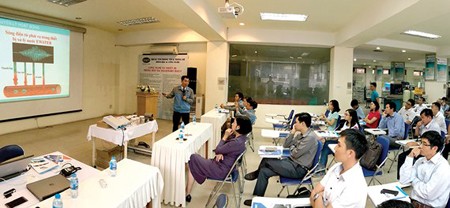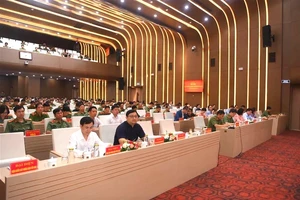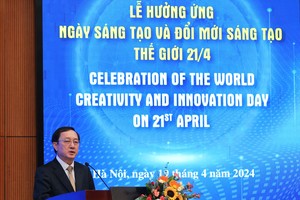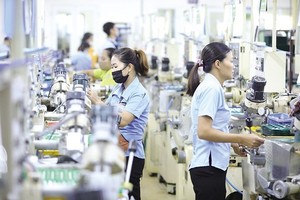
Impressive results
Thanks to the Decision No. 2953/QD-UBND of the Ho Chi Minh City (HCMC) People’s Committee on developing technology and increasing the number of science – technology companies, until November 2018, the HCMC Department of Science and Technology (DST) has issued certificates for 64 science – technology businesses, along with 2 companies having scientific – technological products. Last year, revenues from scientific – technological merchandise mostly came from these businesses. It is supposed that in 2020, the city will have a total of 300 companies of this field.
Being the center of the whole southern region with many universities, research institutes, incubator centers, HCMC has established various formal documents to support innovative startup activities.
The DST has also implemented several plans to develop 35 new science – technology businesses this year, including financing consultation, evaluating research as well as innovation possibilities of potential companies, aiding them to prepare registration documents for a certificate. As a result, 32 out of 35 businesses have received their certificates this year, accounting for 91.4 percent of the goal.
The policy to foster scientific – technological research has gained much attention from the metropolitan authorities as well. During the period from 2016 – 2020, this policy has being focused on mechanics and automation, electrical and electronic engineering, information technology, pharmaceutical chemistry, food technology, material technology, biotechnology, urban management and development.
Clearer favorable conditions needed
The HCMC leaders are now concentrating on companies and startups that can develop scientific – technological products or organizations that plan to renovate their equipment as well as to improve their ability to form higher competitiveness in the era of globalization.
Despite the considerable effort, there exists various difficulties that need to overcome. To begin with, the process to evaluate and issue a certificate for a science – technology business, including categorizing them into one correct group, is troublesome since there is no specific guidance document, especially in such fields as automation technology, new material technology, or environmental protection technology.
Mr. Chu Ba Long, Deputy Head of the Division of Technology and Technology Market Management under the DST said it is not at all easy for businesses to prove that they are possessing or using scientific – technological results.
In addition, the implementation of supportive policies for these companies encounter countless obstacles. It is not clear how they can use certain equipment in focused laboratories, how much lower the rented price in industrial parks should be, how the preferential interest rate for investment loan should be counted.
Lastly, the inability to concretize the certificate evaluation process strongly discourage companies from signing up for this paper. Even the tax incentive policy, which is normally considered the most attractive, cannot be implemented smoothly in reality.
To better fulfill the goal of fostering science – technology businesses, it is necessary to have clarity in all mechanisms and preferential policies for research, land rented price, as well as loan interest rate. The task of commercializing research results and equipment renting also needs more attention.
Since 2008, the DST has cooperated with the Vietnam Intellectual Property Research Institute to organize training sessions for intellectual property administrators so that businesses better understand how to register, exploit, and protect their intellectual possession. These two state offices have also tried to help companies seek and connect with experts to evaluate research projects when necessary. The task of partially financing the process of transferring research results to businesses for production and trading is simultaneously done via many supporting programs.
























